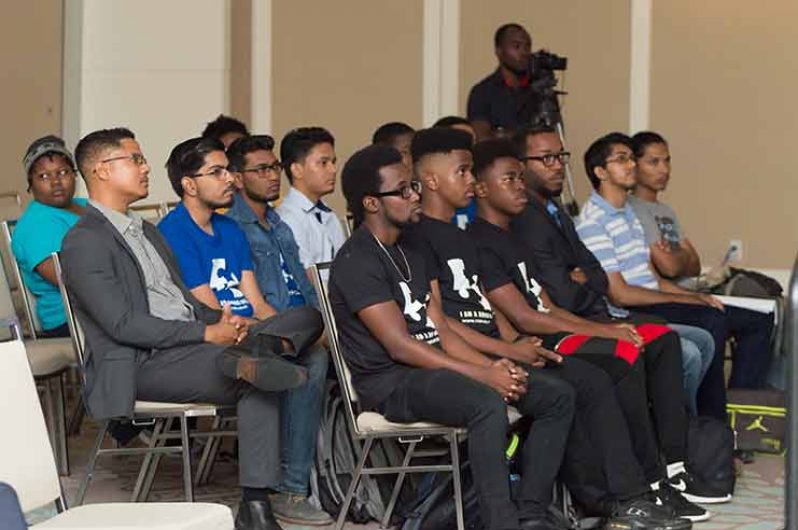— Hack Solve to create prototype software focusing on Sherriff/ Mandela Road Enhancement Project
ABOUT 30 technologists will join forces with civil society members once again for the Nexus Hub Hack Solve event, which aims to create a prototype software that would facilitate the centralised dissemination of public information.

Founder and director of the Nexus Hub, Eldon Marks, explained on Friday that the Nexus Hack Solve is one of the four tech events organised by the Nexus Hub team. It combines technical and non-technical persons who work in conjunction to create a digital solution to a single problem. The most powerful part of the Hack Solve, according to Marks, is the power of collaboration.
This year, as explained by Marks, the aim of this Hack Solve is to create a centralised facility for citizens to access important and useful updates in relation to the infrastructural work being done or that impacts wider society.
This would include nationwide emergency announcements, missing persons’ reports and traffic advisories.
“The initial context of focus for this prototype will be providing this facility for citizens affected by the Sherriff/ Mandela Road Enhancement Project,” he explained.
However, Kenneth Parris, who acts as manager for the Hack Solve projects, indicated to the Guyana Chronicle that the idea is useful in the long run.
“We actually have wide-reaching idea and hopes for this programme moving forward because we see it as a public information system where we can deal with things way outside of traffic advisories. We’re hoping that if we can develop this system and have it as a wide network, is can be used as something that the public can really use,” he said.

Though the idea and components of the programme would have been ‘fleshed out’ on Friday night, before the technologists focused on developing the prototype, Parris indicated that the programme will be developed with cognisance of the different media elements different age groups gravitate to.
“We need to have a centralised way in which we can disseminate information and not only that, but we also want that this way we are disseminating information is popular and widely adaptable where all persons are comfortable using the system,” he explained.
ADDRESSING CHALLENGES
At the launching of the event, Project Manager at the Ministry of Public Infrastructure, Mark Green, made known the many challenges contractors face when engaged in these types of work.
When engaging in rehabilitative and expansion works, he indicated that there is a “traffic control plan” instituted to “maintain some semblance of order”.
This plan is complimented by a communication plan which attempts to disseminate information of the works to road users. But even with these in place, he said they are not always adhered to, or citizens still have trouble accessing information.
“We feel confident, at the ministry, that the Hack Solve is a viable technical solution,” Green said, pointing out that he too shared the view that this system can be used in other areas to resolve similar issues.
On Friday, which was day one, the team reviewed the problem and generated the idea and the requirements for this idea, so that the programme would be ‘fleshed out’ in time for the following days. Members of the public were encouraged to weigh-in on the issue.
On Saturday, persons will begin designing and constructing the digital solution. And finally on Sunday, it is expected that further work will be done on the creation of the programme. When this prototype is completed, as far as possible, the software will be presented.
Parris stressed that in only about three days, it must be noted that only a prototype can be created. Following this, it is expected that there will be further engagements with civil society, to address the functionality and usability of the programme.
This Hack Solve was also funded by the Inter-American Development Bank (IDB), which is a partner in addressing developmental issues in Guyana. The bank had a part to play in facilitating the road expansion project and also opted to fund the event, which aimed to mitigate certain issues that arose.
IDB Country Representative, Sophie Makonnen, indicated that while the bank focuses on developmental projects, it is also focused on promoting innovation and technology.
“We thought it was important to give some impetus or some push to sort of bring this [the hack Solve] together,” she said.













